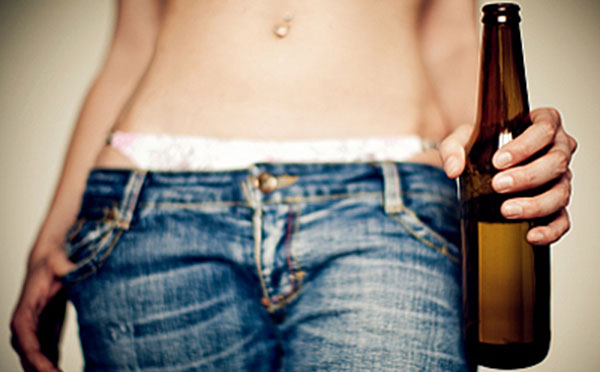If you’re heading off to college, there’s little doubt that friends and family have teased you about the freshman 15. The good news is this: The freshman 15 is a myth. While many freshmen do gain weight, the story has taken on a life of its own. The truth is that most freshmen gain less than ten pounds. While tales may be exaggerated, any weight gain should be avoided if possible. Here are a few reasons that college can pack on the pounds.
Poor Nutrition
College is often the first time that young adults are completely responsible for feeding themselves and, unfortunately, they don’t always make the best choices. Rather than taking advantage of their dining card, many college students live on pizza and fast food. If you’ve paid good money for your college’s meal plan, it makes sense to use it wisely.
By eating in the dining hall rather than at the local fast food restaurant, you can take better control over your diet. By eating several small, balanced meals every day, you can keep your both your immune system and your metabolism in top shape. Instead of scarfing down pizza after pizza, try to have a few bits of fruit and veg every day.
No Exercise
Mistakenly, college students assume that walking to and from class constitutes exercise. Within a few weeks, your body will start to develop muscle memory, and those short jaunts to class stop counting as exercise. To get the right amount of effective exercise in college, you’ll need to make an effort to do so.
Many college students find that taking a physical education elective can help them exercise. You can sign up for a weight lifting class, a yoga class or even a circuit training class. Not only will you keep the weight off, but you’ll be able to get a few extra credits at the same time.
Alcohol Consumption
Alcohol is packed full of calories and, unless you stop at one drink, you will quickly start to pack on the pounds if you spend your nights at the club. Drinking light beer won’t make a bit of different if you’re pounding back a six-pack several nights a week. Try to limit the alcohol consumption as much as you can if you can’t just skip it altogether.
While you’re cutting back on the alcohol, make sure that you’re drinking enough water. The average person needs between four to eight glasses of water a day. It’s an easy goal to accomplish if you carry a water bottle in your bag. Additionally, make a deal with yourself to drink one glass of water for every soda or alcoholic beverage that you consume.
Lack of Sleep
When you don’t get enough sleep, your metabolism slows down. Not only will you feel drained and unfocused, but you’ll start to keep a strong hold on every calorie that you take in. The average adult needs between six and eight hours of sleep per night to keep their body running as it should. In order to get the amount of sleep that you should, try to go to bed at the same time each night and wake up at the same time each morning. When your sleep cycle is regulated, your metabolism will work as it should, helping to prevent you from gaining weight.
There are just as many students that don’t gain any weight their first year of college as those that do. Students who maintain their weight do so because they take care of themselves properly. By following the tips above, you’ll be sure to avoid the famed freshman 15 when you head off to school.
Lewis West writes articles for health education blogs. Interested in health and healthcare, or do you currently work in the field? You may want to check out health administration graduate programs like healthadmin.ohio.edu for more information about getting into or advancing a healthcare career.